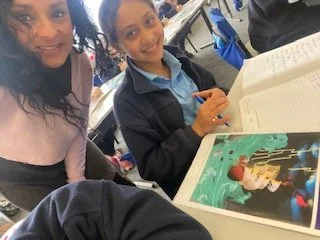
Think Forward Blog
Writing Assessment is Hard! How should we report assessments to parents?
What is the best way of reporting assessment information to students & parents? This is a question I hear all the time, and it isn’t easy to answer. What we all want is an assessment system that is (a) accurate, (b) easy to understand, (c) not too time-consuming for staff, and (d) motivating for students. But these principles are all in conflict with each other.
A Question of Genre
One of the questions we have had from members of the TFE Writing Network has been related to genre teaching. Teaching writing in the context of genres is a common practice in Australia particularly due to our curriculum progressions that specify across several year levels: an expectation that students will be able to produce ‘imaginative, informative and persuasive’ texts. In Victoria this is first mentioned in Year 1.
This was highlighted when a friend recently called me during one of our lockdowns, frustrated at watching her Year 2 daughter cry during an online writing lesson where she was required to come up with a problem, solution and list of characters. Why was this so hard for her and why was I not surprised having seen this many times in an early years classroom? An understanding of genres is important. We know it makes a difference and students need to be able to write about different topics and create specific compositions. So perhaps the problem lies in the way we teach it.
From “Assigning” to Teaching — How research can reshape writing instruction
I once had a student who loved rhinos. After all, what's not to love? During ‘free choice’ writing sessions (the opportunity for students to engage and communicate across genres of their choice), this student continued to write about rhinos in several formats. There was the narrative on rhinos, the persuasive, the poem – both Acrostic and Haiku.
His writing was engaging, passionate, showed an awareness of purpose and audience, but what niggled at me was that I wasn’t teaching him anything.
Actually, what I found was that my competent writers avoided authorial risks. They wrote texts where the topic was the focus, while writers who found writing challenging, continued to find it so. The struggle to engage was confronting.
Five Ways Series: The Science of Reading
Five Ways Series: The Science of Reading
Over the coming weeks, Think Forward Educators will be posting a series of blog articles written by educational experts providing ready-to-use tips on how to implement the Science of Reading into the classroom.
Inspired by Tom Sherrington’s Five Ways Collection, the posts have been edited and curated by Brendan Lee and Dr Nathaniel Swain.









Over the coming weeks, Think Forward Educators will be posting a series of blog articles written by educational experts providing ready-to-use tips on how to implement the Science of Reading into the classroom. Inspired by Tom Sherrington’s Five Ways Collection, the posts have been edited and curated by Brendan Lee and Dr Nathaniel Swain. The second blog post of the series comes from teacher and consultant, Lindsey Bartes, on Phonics teaching.